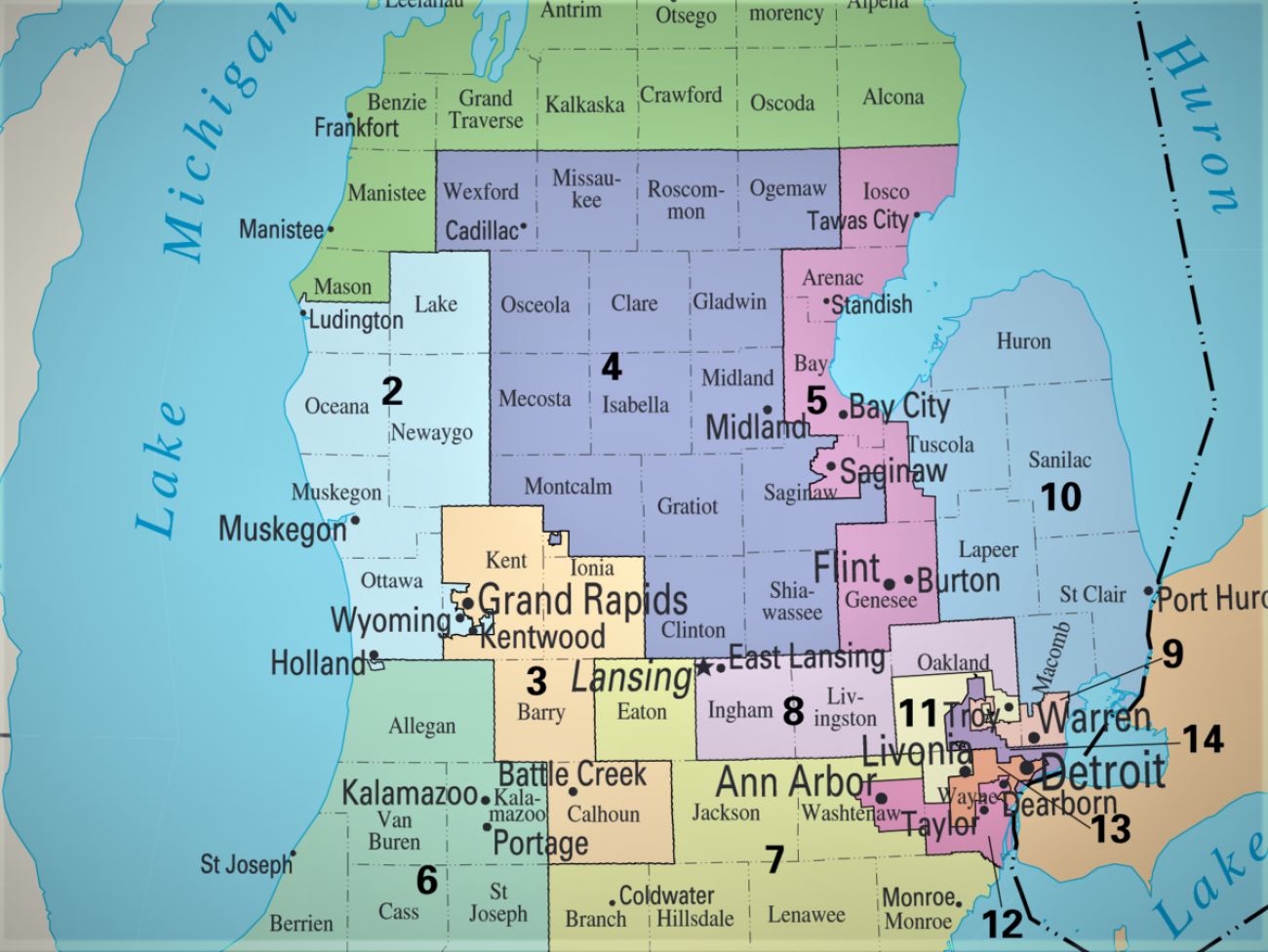Census losses could squeeze northern Michigan, Detroit as redistricting begins


Aug. 16: Census changes may spell trouble for Michigan Democrats as redistricting starts
LANSING — After months of preparation, the Michigan Independent Citizens Redistricting Commission will start drawing new state legislative and congressional maps now that the U.S. Census Bureau has released its decennial population counts.
There’s a lot at stake: Michigan will lose one congressional seat, going from 14 to 13, and some experts say continued population losses in northern Michigan and Detroit will have a big impact on the new maps.
Democratic consultant Adrian Hemond said Detroit got “eviscerated” in the Census count — losing 10.5 percent of its population to fall to 639,111 — which could dilute the city’s power when new districts are drawn.
Related:
- Census 2020: Michigan has a few areas of growth, wide swaths of decline
- Michigan redistricting group hires law firm with GOP ties over objections
- Census takeaways: West Michigan gains, Detroit & U.P. lose, state more diverse
- Census 2020: Look up population changes in your Michigan community
By law, Michigan must have two majority-minority districts, and population losses in Detroit may mean the districts would have to include more African-American cities in Oakland County when lines are drawn, Hemond said.
Voters in areas like Hazel Park, Oak Park, Eastpointe or Royal Oak Township may get "sucked up into the Detroit districts," and that would benefit Republicans, said GOP consultant Brian Began.
Other congressional districts that touch Oakland County could become less of a sure bet for Democrats, and experts say at least two of the three congressional Democrats who live in Oakland County are likely to get drawn into the same district.
Reps. Elissa Slotkin of Holly, Haley Stevens of Rochester Hills or Andy Levin of Bloomfield Township may have to end up moving if they want to avoid a tough Democratic primary, Hemond said.
The 13-member redistricting commission, created by voters in 2018 to wrest the process away from politicians, is in a time crunch to complete the process.
The constitutional deadline to have the final maps approved is Nov. 1, but due to delays on the Census data the panel expects to vote on them on Dec. 30.
Besides population changes, consultant Kimball Brace said one of the most remarkable takeaways from the Census is changing demographics.
“I think the most astounding thing that we're seeing in Michigan but also across the country is the significant increase in the ‘Some Other Race,’ ... that people have selected this time,” said Brace, a consultant hired by the commission to help draw the new maps.
In 2010, 2.3 percent of Michigan’s residents selected the option. But in 2020, 6.3 percent identified as such.
White voters are the Republican Party’s most reliable bloc, and there are fewer than there were in 2010: The percentage of residents identified as white and non-Hispanic fell to 76.7 percent in 2020 from 80.1 percent.
Population losses were most stark in GOP strongholds like the Upper Peninsula, and continued population gains in west Michigan could leave Rep. Bill Huizinga, R-Zeeland, in a more competitive district.
But the state's geography means it is unlikely that map makers will be able to strip a seat from northern Michigan, which currently is almost entirely contained in the sprawling 1st Congressional District, said Began, the GOP consultant.
"There's only one seat out of there," Began said. "Where would you take a seat out of northern Michigan?"
In all, 50 of 83 Michigan counties lost population, including 14 of the 15 counties in the Upper Peninsula that are in the 1st Congressional District represented by Rep. Jack Bergman, R-Watersmeet.
According to the 2020 Census data, each member of the U.S. House of Representatives will now have to represent an average of 761,169 people.
Jon Eguia, an economics professor and expert on redistricting at Michigan State University, told Bridge Michigan the loss of residents in northern Michigan is likely to expand the 1st District.
“If you are losing people, your district is going to expand and cover more areas to get more people from other places,” Eguia said.
On Thursday, the National Democratic Redistricting Committee, chaired by former Democratic U.S. Attorney General Eric Holder, asked the commission to consider nixing a district from the “northern central Michigan.”
“The lost seat should come from this area, allowing the surrounding districts to grow naturally and absorb the lost district,” the group said in a statement, while adding the commission should protect the state’s African-American and Arab-American populations from being all placed in one district to dilute their electoral power.
“Michigan is a competitive state and a fair congressional map will reflect the slight Democratic lean of its voters as a whole,: said Kelly Burton, the president of the National Democratic Redistricting Committee.
“The map should also reflect the growing number of people of color who call Michigan home.”
See what new members are saying about why they donated to Bridge Michigan:
- “In order for this information to be accurate and unbiased it must be underwritten by its readers, not by special interests.” - Larry S.
- “Not many other media sources report on the topics Bridge does.” - Susan B.
- “Your journalism is outstanding and rare these days.” - Mark S.
If you want to ensure the future of nonpartisan, nonprofit Michigan journalism, please become a member today. You, too, will be asked why you donated and maybe we'll feature your quote next time!


